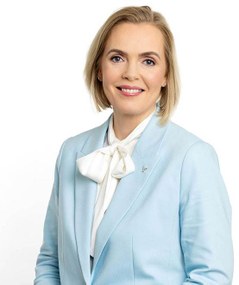Major increase in applications: Iceland’s government seeks tighter immigration rules
There have been strong and frequent discussions about a change in the immigration system in Iceland in recent years. The reason is a huge increase in asylum applications which has proved very costly for the Icelandic state.
There were fewer than 900 asylum applications in Iceland between 2018 and 2021. In 2022 there was a huge change. That year saw 4,495 applications and in 2023 there were 4,159.
77 per cent of the 2023 applications were people from Ukraine and Venezuela, and these were the main cause of the increase. Proportionally, this is the highest number of asylum applications out of all the Nordic countries.
The graph show that immigration to Iceland was small until peaks around 2008 and 2015, followed by as surge in 2011. Source: Statistic Iceland.
The number of Ukranian applicants is understandable, timed right after Russia’s invasion. The increase in Venezuelan applications started in 2019 when the directorate of immigration opened up for asylum for people from there because of the dire economic situation in the South American country.
The situation in Venezuela was reevaluated in November 2022 and found to have changed for the better. In 2023, hundreds of applications from Venezuela were declined.
“Spinning out of control”
In October 2022, Jon Gunnarsson, then the Minister of Justice, told parliament that tougher immigration rules were necessary because of the huge increase.
“We can’t let this spin out of control like that. We actually have lighter rules here for asylum seekers than our neighbouring countries, which means that more people are drawn here proportionally than elsewhere.
“That's because our legal environment is not comparable to the countries we are comparing ourselves to in Europe,” he said.
He explained that by saying that the term “further protection,” which applies to people who are not considered refugees according to the law but who are likely to be persecuted or tortured in their homeland, gives better protection than in neighbouring countries.
There are also no reception centres in Iceland for those waiting for their applications to be processed so applicants go straight into the community.
The government has also pointed out that there has been a big increase in asylum applications from those who already have protection in another country. That can mainly be explained by two details in Iceland’s current legislation.
Firstly, the authorities are obliged to process applications from people who already have protection elsewhere if the applicant has a special connection to the country, or other reasons recommend it.
Secondly, the authorities are obliged to process an application if 12 months have passed since it was sent. Because the number of applications has gone up, more of them have not been reviewed within twelve months. And since these have to be processed, they put further strain on the asylum system.
The government has pointed out the increased cost this has caused for the state. The asylum seekers have the right to food and shelter while they wait for the result of their application, and each application also takes a longer time to process.
With all that in mind, Gunnarsson put forward draft legislation which was meant to change all this, but it failed to secure the necessary support. His successor, Guðrún Hafsteinsdóttir, who took over as Minister of Justice last year, has now sent her own draft to parliament after getting it consented to by the government.
 In an article on visir.is she says:
In an article on visir.is she says:
“Icelandic society is facing bigger challenges due to the rapid increase in asylum applications. The number of applications has increased by 3,700 per cent in just over a decade and has caused significant costs for the state – about 20 billion ISK in 2023 – as well as a strain on all our infrastructure.”
And in reaction to this, the draft suggests a few changes in the immigration law.
Tougher rules on protection
Firstly, exceptions for when not to assess the applications are removed - which simply means the conditions for assessing it will be tighter.
For example, a special connection to the country will not be sufficient to assess the application as it is now. According to the analysis of the draft, no exceptions like these can be found in other Nordic countries’ immigration legislation.
Secondly, the family of an individual who is granted asylum and then a residence permit, will not be eligible for family reunification until two years later, and then only if the permit of the individual has been renewed. This is similar to what Denmark does.
Thirdly, the validation time for first residence permits will be shortened from four years to two or three. This is more in line with other Nordic countries, according to the government.
In the statement accompanying the bill, the government says that the asylum system is an emergency system and it is important that those in real need of protection get their application processed quickly and efficiently.
“It is important that the procedure is not delayed due to the heavy burden on the administration when processing the cases of applicants who have already received asylum in another European country.
“The high percentage of applications for protection from people who have already received protection in another state reduces the efficiency of the administration. As a general rule, the vast majority of such applications are refused, or almost 90 per cent in 2022, and therefore such applications cause increased strain in the system without delivering the desired results by granting protection, additional protection or a residence permit based on humanitarian considerations.”
It’s still unclear how this draft will fare, but it is more likely to pass before parliament than previous drafts. The Judicial Affairs and Education Committee still has to review it and after that, it should be clear whether the draft goes through.
 Follow us on Facebook
Follow us on Facebook
